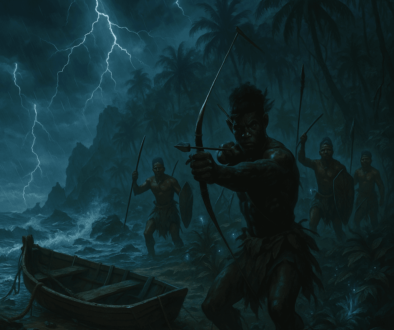Fishermen Storm Chile’s National Congress Over Fishing Bill Delay
Violent Clashes Erupt in Valparaíso as Senate Stalls Controversial Vote
On Tuesday, March 25, 2025, hundreds of fishermen swarmed the National Congress in Valparaíso, Chile, their fury aimed at a Senate commission dragging its feet on a new fishing bill. What started as a loud but orderly protest turned ugly fast—some tried to storm the building, smashing down a gate, only to be met by riot police wielding water cannons, tear gas, and batons. The chaos left at least one officer injured and several protesters in cuffs, a stark sign of how high the stakes have climbed.
Meanwhile, thousands more fishermen rallied at Valparaíso’s docks, waving banners that screamed, “The sea is not for sale” and “Our country is surrounded by sea, yet people barely eat fish.” They’re pissed—and they’ve got a point. The fishing industry, they say, is more about churning out fishmeal for salmon farms that trash the ocean than feeding Chileans. This bill, stuck in Senate limbo, was supposed to fix that. Instead, it’s tearing the coast apart.
ALSO READ : China’s New Weapon: A Deep-Sea Cable Cutter That’s Shaking the World!
The Fishing Bill at the Center of the Storm

What’s the Bill About?
This isn’t just noise—it’s a fight over who gets to fish Chile’s waters. The bill, already greenlit by the lower house, aims to divvy up quotas between industrial fishing giants and artisanal fishermen, the small-scale crews who’ve worked these seas for generations. The original version gave artisanal fishers a solid 70% of the haul, leaving 30% for the big companies. It was a win for locals, boosting sales of hake and cuttlefish, key catches for their trade.
But then the Senate got involved. The fishing commission reworked the numbers, slashing the artisanal share and tilting the scales toward industrial outfits. “This is what angered us,” one fisherman fumed. “We spent over a year hashing this out in the Chamber of Deputies, and then five senators just said ‘no’ and gutted our quotas. It’s anti-democratic—dictatorial, even. Five people can’t decide the future of artisanal fishing!”
ALSO READ : Military Coup in Bangladesh 2025? Army’s Emergency Meeting Sparks Chaos
A 30-Year Lock-In
Here’s the kicker: once this law passes, it’s set for 30 years. That’s three decades of either thriving or scraping by for Chile’s coastal communities. The fishermen aren’t just mad—they’re scared. Industrial fishing, especially for salmon farm fishmeal, sucks up species that could feed families and pollutes the waters they rely on. “We’re mere sea,” their banners read, “but people barely eat fish.” It’s a gut-punch of a question: why does a nation hugged by ocean struggle to put fish on its plates?
Why Artisanal Fishermen Are Fed Up?
A Way of Life Under Threat

From Arica to Punta Arenas, fishermen flocked to Valparaíso, united by a shared dread. “The sea is our life,” said Carlos Rivera, a grizzled artisanal fisher from Coquimbo. “We’re not begging for charity—just a fair cut.” Unions echo that call, slamming the revised bill for favoring corporate profits over human need. They’ve got data to back it up: Chile’s industrial fishing hauls in over 1.5 million tons yearly, much of it ground into fishmeal, while artisanal catches—under 300,000 tons—feed local markets.
The environmental angle stings too. Salmon farms, a $5 billion industry here, dump waste and chemicals into the sea, choking ecosystems. A 2023 report from Oceana Chile flagged declining fish stocks and polluted coastlines, hitting artisanal fishers hardest. They’re not just fighting for quotas—they’re fighting for a future.
Chaos at the Congress: A Protest Turns Violent

The Valparaíso showdown got messy quick. Protesters, fed up with delays, tried to breach the Congress, toppling a gate before police pushed back hard. Water cannons soaked the crowd, tear gas burned their eyes, and batons cracked down. One officer took a hit—details are murky—while cops hauled off several fishermen to cool things down. It was raw, ugly, and a long time coming.
At the docks, the vibe was just as fierce. Thousands waved signs and chanted, their message ringing clear: the sea’s not a factory. “The Senate’s selling us out,” Rivera growled. “We won’t let them.”
ALSO READ: Canada Elections 2025: India’s Role, Trump’s Jab
Senate Standoff: What’s Next for the Fishing Bill?
Delays and Deadlocks
As of Wednesday, March 26, 2025, the Senate’s still debating, with more holdups on the horizon. Legal snags and political jockeying could drag this out for weeks. The fishermen? They’re not budging. “We’ll keep fighting,” Rivera vowed. “This is about survival.”
Experts say the bill’s a tightrope walk—balancing artisanal needs against industrial clout. Chile’s fishing sector pumps $10 billion into the economy yearly, per government stats, but the split’s uneven. Industrial players have deep pockets and deeper influence, while artisanal fishers lean on grit and numbers. The Senate’s next move could tip the scales—or spark more unrest.
Chile’s Fishing Fight: A Global Warning
This isn’t just Chile’s mess. From India’s shores to America’s Gulf, small-scale fishers everywhere are squaring off against corporate giants and shrinking seas. In Chile, it’s a loud, messy stand for equity—and a warning. The ocean’s big, but it’s not endless. Neither is the patience of those who live by it.





US-South Africa Tensions: White Genocide Claims Debunked
March 27, 2025 @ 6:07 am
[…] ALSO READ : Fishermen Storm Chile’s National Congress Over Fishing Bill Delay […]